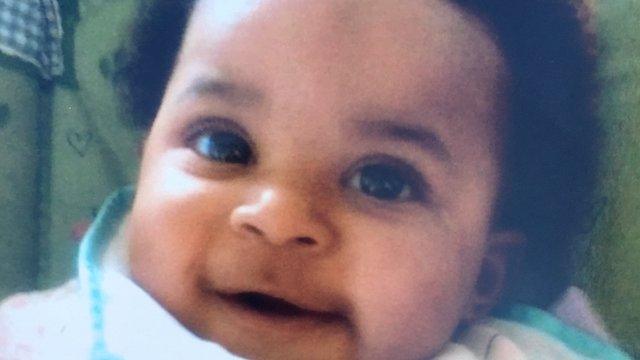'I sent my adopted son back into care'
- Published
'Rob': 'My wife now shows the sort of symptoms of someone who's suffered domestic abuse'
Thousands of children are successfully adopted each year, but a small number of cases will end in failure. So what makes an adoptive parent return their child into care?
Rob had been warned by social services that the boy he was adopting could be difficult, but nothing prepared him for what came next.
"He was violent towards my wife, so she got kicked and thumped," he said.
"There was quite a lot of emotional abuse to her as well - and this was from a four-, five-year-old kid.
"My wife now shows the sort of symptoms of someone who's suffered domestic abuse."
Rob, not his real name, and his wife had children of their own, but decided to adopt three more.
He told the BBC's Victoria Derbyshire programme that one of them had rejected their affections and attempts to love him.
He also said had the family been given more support, then the situation might have been different.
Rob said he ended up with "quite serious" depression, and almost lost his job because he took a lot of time off work.
Finally, the situation became untenable and the boy was taken back into care.
Rob described this as the hardest thing he had ever had to do.
"For us it felt like failure," he said.
"It felt like letting this kid down. And how can you do that to your own son, whom you really love? It's heartbreaking."
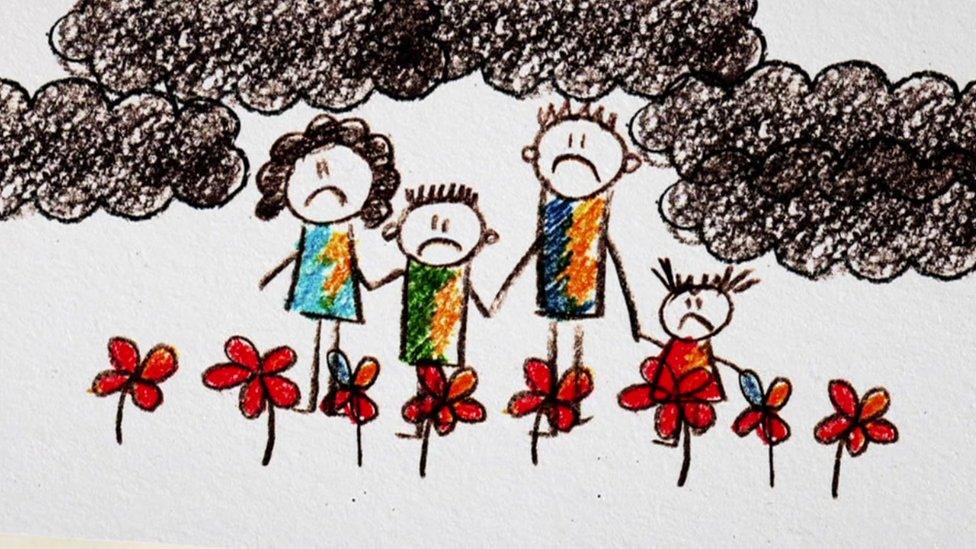
A small number of children fail to settle with their new adoptive family
It can take anything from six months to two years to adopt a child, but not all new relationships are successful.
National statistics do not exist, but it is estimated that between 3.2% and 9% of adoptions fail, with the child either being taken back into care, or leaving the family home.
The charity Adoption UK thinks as many as a quarter of all adoptive families are in crisis and in need of professional help to keep the family unit together.
Specialist therapy is available for adoptive children, to help them settle with their new family.
However, such therapy is expensive and even though adoptive parents in England have access to the Adoption Support Fund, it does not always cover the costs.
The fund was set up in 2015 so that parents, via their local authorities, could apply for financial support for specialist therapy.
But demand outstripped expectations, and in October 2016 the government announced the fund would be capped at £5,000 per child.
Julie Selwyn, professor of child and family social work at the University of Bristol, has written a report about adoption breakdown., external
She said many of these specialist interventions needed more than "one-off therapy".
"It needs to be ongoing, and it will often cost a lot more than £5,000," she said.
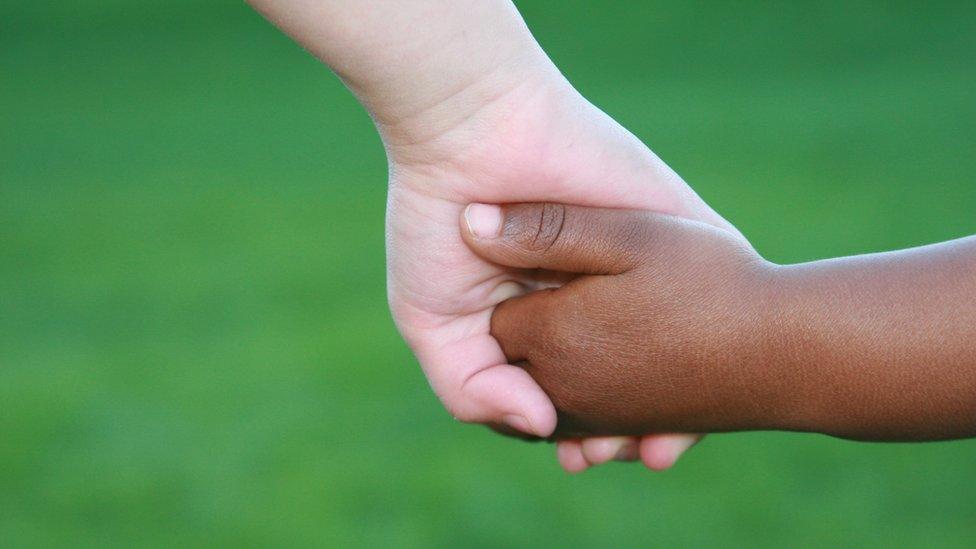
Prof Selwyn also said children who were older when they were placed with a new family were far more likely to suffer disruptions.
"It's whether they want to be adopted when they're older and how long they've been exposed to adversity in their lives," she said.
"What they've often learnt is that adults aren't very caring and that adults can't meet their needs, so they find it hard to trust new parents."
One woman, who asked to remain anonymous, said the two children she had adopted had been diagnosed with post-traumatic stress disorder.
"A therapy plan was put together, but then we were told about the new funding cap and that won't even cover the cost of the initial assessment," she said
"The therapy for our two children has been priced at £30,000. We are devastated."
Parental clash
Liz, not her real name, adopted two sisters. The eldest was nine and never settled.
"The anger was off the scale really," Liz said.
"I lost my business because of the stress and in a way, you feel a sort of bitterness - not towards your daughter, but because of the system."
Liz's elder daughter moved out when she was 16.
Now 18 and a mother herself, she is still in touch with her adoptive parents, but said she had struggled to accept them.
"It was difficult, because it was a change, especially at nine years old," she said,
"It was strange, because you've got new parents.
"It was mainly difficult with my adoptive mum.
"We clashed, because I didn't really let go of what I do remember as a child with my biological family."
There are about 87,000 children in care in the UK, and every year about 5,500 are adopted.
These are often the most vulnerable, with no chance of returning to their birth families.
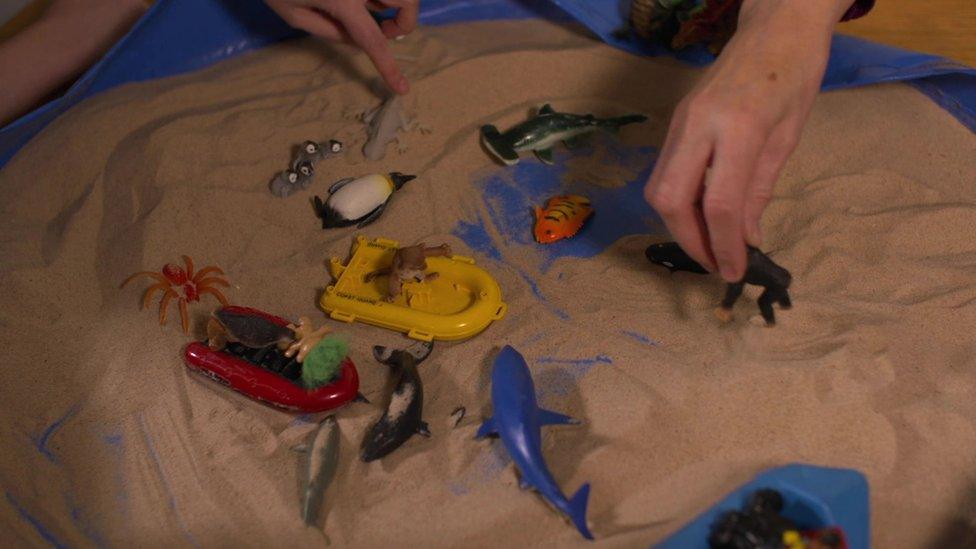
Play therapy is used to help adopted children bond with their new parents
The government said it was committed to helping adoptive parents and their children.
The Department of Education said the Adoption Support Fund's budget had been increased from £19m to £23m and that the government planned to increase the fund's budget in every year of this Parliament.
It also said capping the funds available allowed more families to benefit.
But some parents questioned the logic of reducing access to early therapy.
Rob's adopted son is now looked after by two full-time carers, at great expense to his local authority.
He said that if they had had help sooner, it could have benefitted everyone.
"We had such high hopes for what we could give," he said.
"And the saddest bit is that we gave everything we had, but the people we thought were going to back us up just weren't there."
The Victoria Derbyshire programme is broadcast on weekdays between 09:00 and 11:00 on BBC Two and the BBC News channel.
- Published23 January 2017
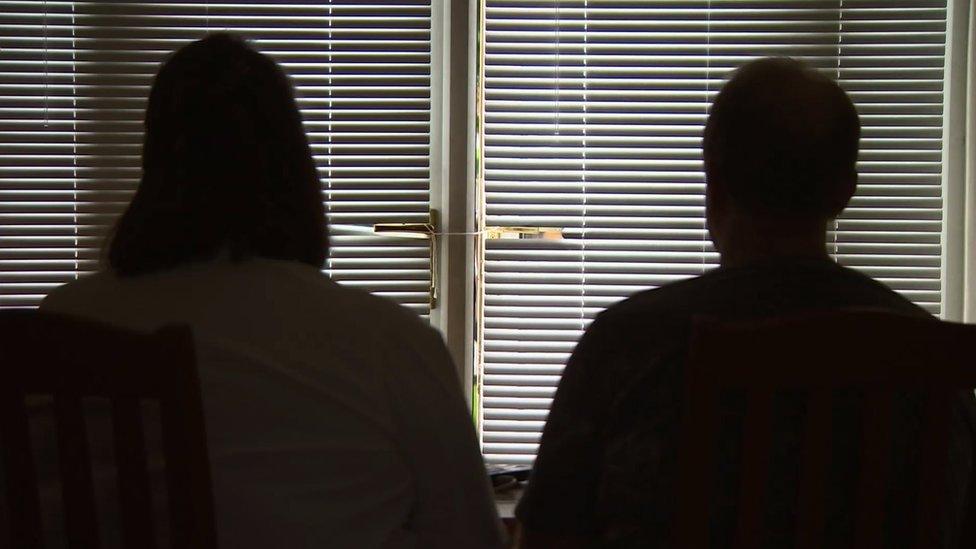
- Published6 December 2016
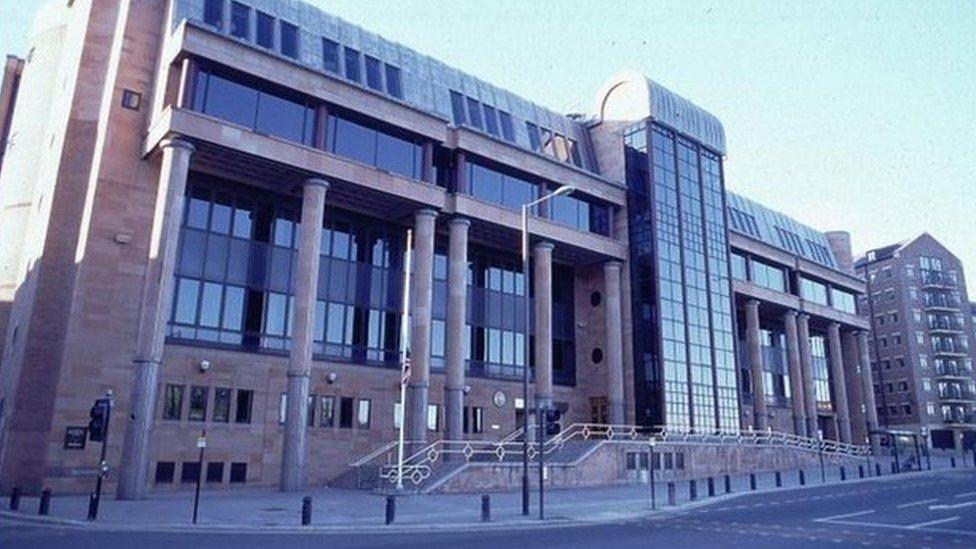
- Published2 September 2016
